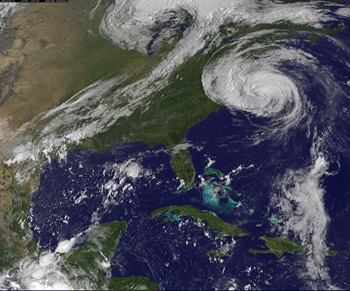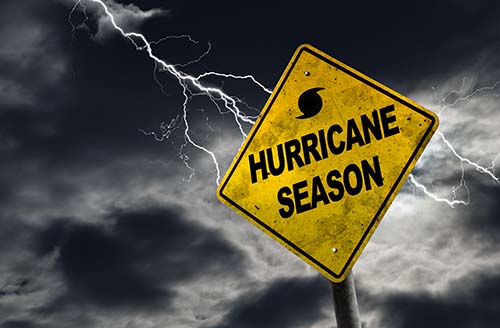
From our offices outside of Washington, DC, we watched on TV as Hurricane Ida slammed into the shores of New Orleans as a Category 4 Hurricane and left a trail of devastation and flooding through the rest of Louisiana. Morphing into Tropical Storm Ida, she brought heavy rain, flooding and tornados to parts of Mississippi and then upward through the Mid-Atlantic, with its next stop slated for the Northeast.
Although we didn’t have boots on the ground, we did have phones to our ears and keyboards under our hands, working to keep our members informed of what we were hearing from the Federal Emergency Management Agency (FEMA), the affected states, our members, and state association executives who were living through it. Several states have declared states of emergency: Alabama, Louisiana, Mississippi, Pennsylvania and Virginia. Louisiana received a Presidential Major Disaster Declaration (See the Louisiana press release regarding the Presidential Major Disaster Declaration). Alabama Governor Ivey has also issued a supplemental state of emergency to the current state of emergency in place for hurricane Ida geared at enabling Ida evacuees to more easily obtain emergency prescription refills.
The Federal Motor Carrier Safety Administration issued a regional emergency declaration in anticipation of Hurricane Ida’s landfall, and currently covers Alabama, Arkansas, Louisiana, Mississippi, Tennessee, and Texas. (We’ll update this as we hear more.) Louisiana has a transportation waiver.
Every afternoon, FMI participates in calls with FEMA to hear reports from the various regions affected by Ida. FMI also provides an assessment from the grocery industry. Be sure to see each day’s FEMA notes here.
The U.S. Department of Agriculture (USDA) has approved a hot foods waiver for Louisiana Supplemental Nutrition Assistance Program (SNAP)recipients, through September 28, 2021. Disaster SNAP (DSNAP) will only be approved once stores are able to open and the State can set up and run the application process in locations that are accessible to people.
FMI also has a list of key websites that members may find useful:
NOAA Potential Storm Surge Flooding Map (use “Inundation layer only” option)
U.S. Department of Transportation (DOT)
Louisiana D-SNAP Updates
FACT SHEET: How the Biden Administration is Supporting Hurricane Ida Response Efforts in the Gulf Coast
Pennsylvania Task Force
New Jersey Disaster Assistance Page
New York FEMA Assistance
A note regarding food safety:
The security and quality of food remains top of mind, and a written Food Safety Emergency Plan should identify the food products and equipment temperatures that should be monitored and documented, including the frequency and tools needed and the criteria for discarding food. For companies that are not in the middle of a natural disaster, they may seek pre-approval of emergency operating plans by local regulatory authority to remain in operation during conditions such as loss of electricity or water service.
FMI will continue to keep our members apprised of all new developments, and we will include updates via this blog. For additional crisis resources, visit www.FMI.org/Crisis
Updated on Sept. 9, 2021


 Industry Topics address your specific area of expertise with resources, reports, events and more.
Industry Topics address your specific area of expertise with resources, reports, events and more.
 Our Research covers consumer behavior and retail operation benchmarks so you can make informed business decisions.
Our Research covers consumer behavior and retail operation benchmarks so you can make informed business decisions.
 Events and Education including online and in-person help you advance your food retail career.
Events and Education including online and in-person help you advance your food retail career.
 Food Safety training, resources and guidance that help you create a company food safety culture.
Food Safety training, resources and guidance that help you create a company food safety culture.
 Government Affairs work — federal and state — on the latest food industry policy, regulatory and legislative issues.
Government Affairs work — federal and state — on the latest food industry policy, regulatory and legislative issues.
 Get Involved. From industry awards to newsletters and committees, these resources help you take advantage of your membership.
Get Involved. From industry awards to newsletters and committees, these resources help you take advantage of your membership.
 Best practices, guidance documents, infographics, signage and more for the food industry on the COVID-19 pandemic.
Best practices, guidance documents, infographics, signage and more for the food industry on the COVID-19 pandemic.
